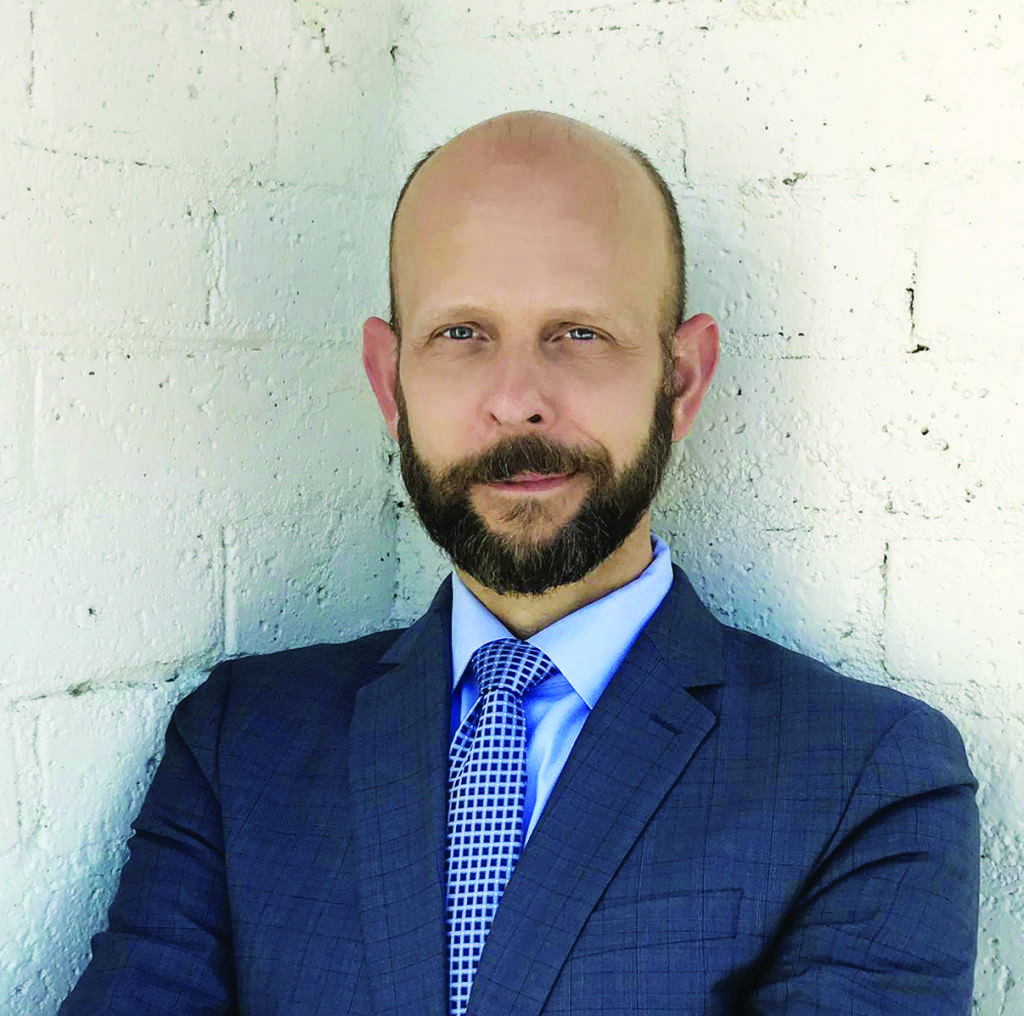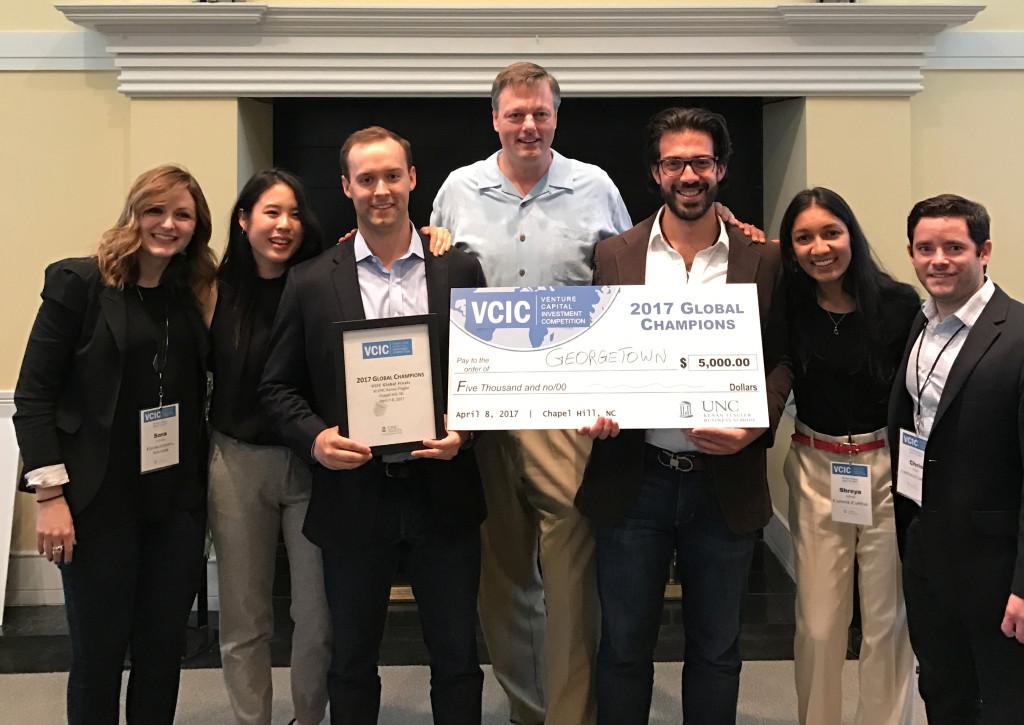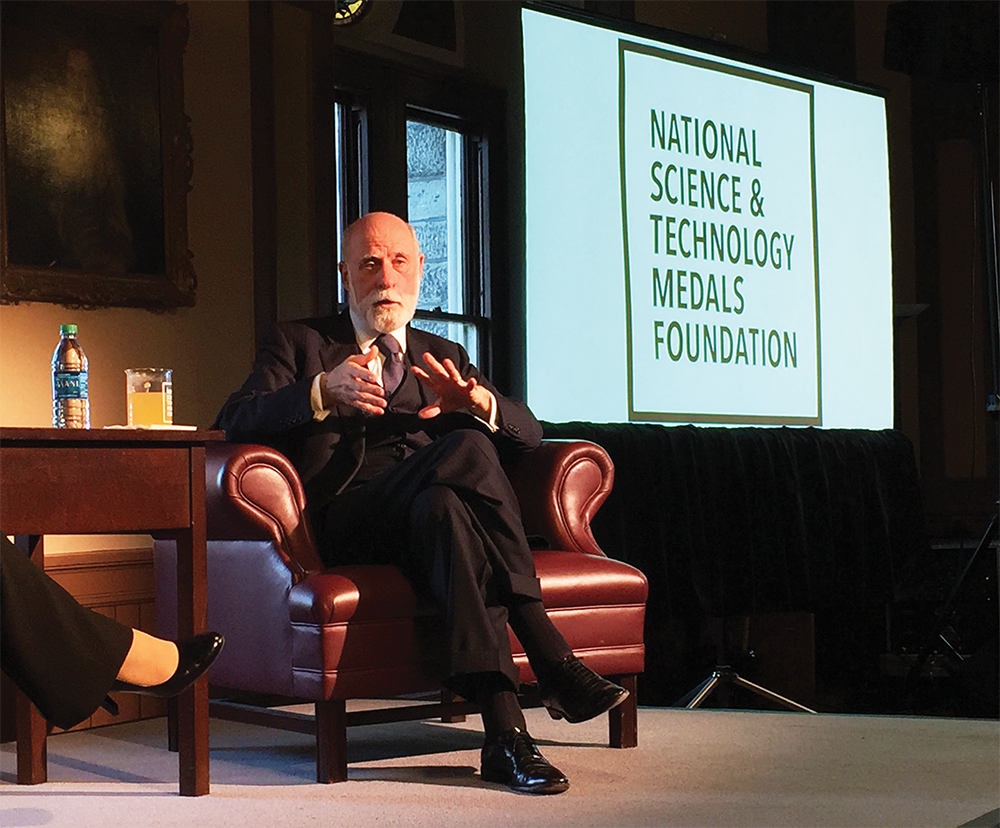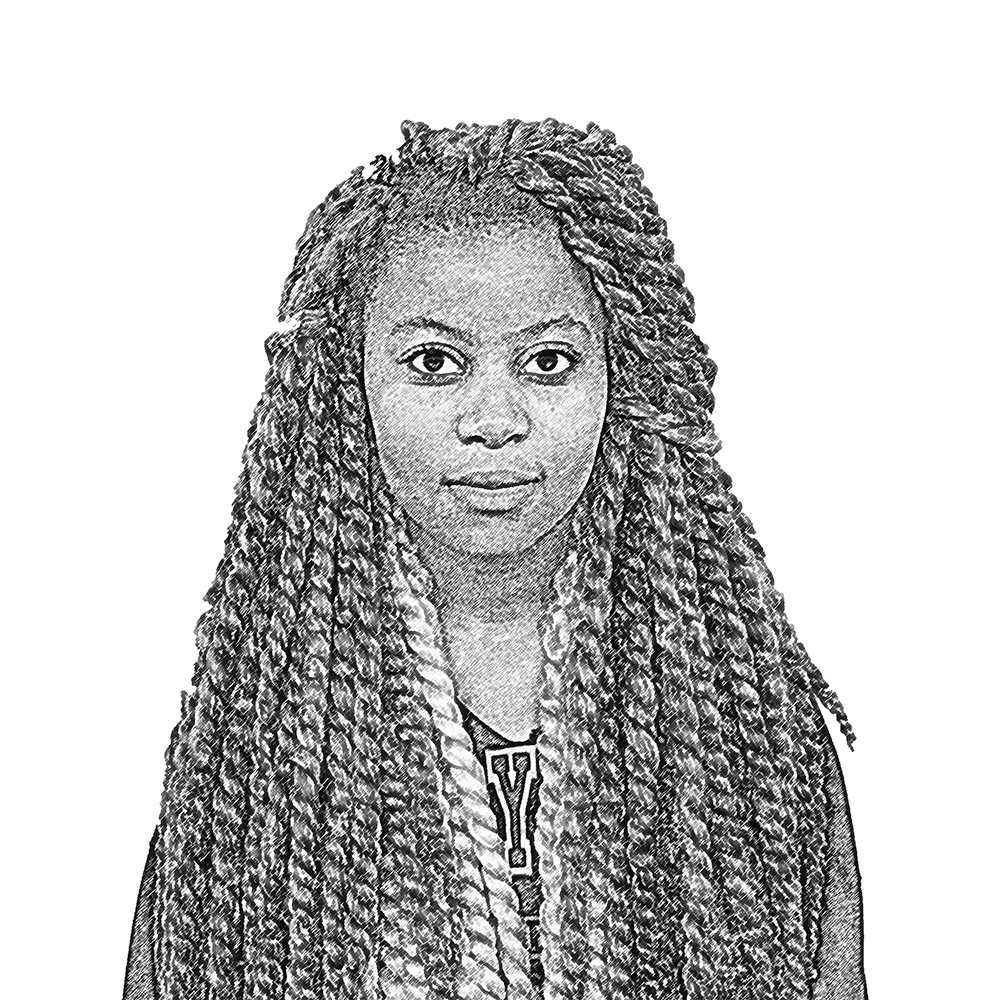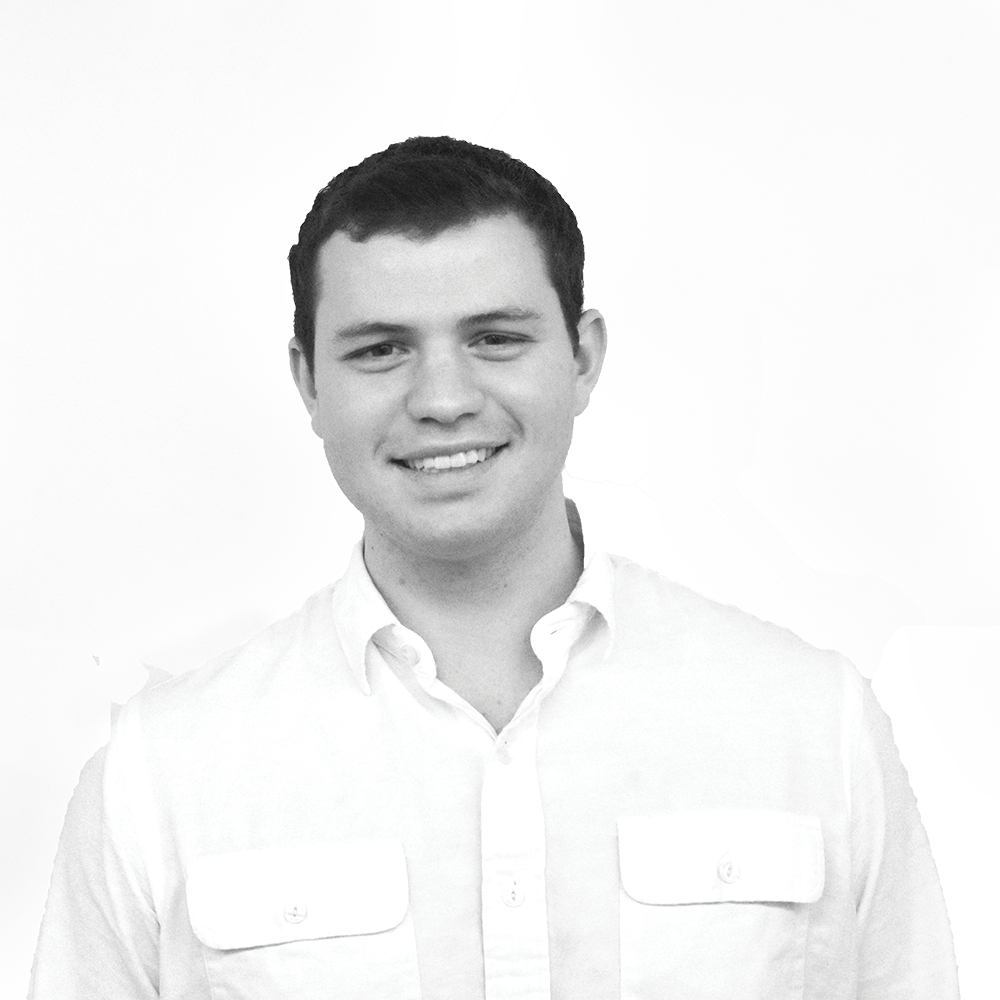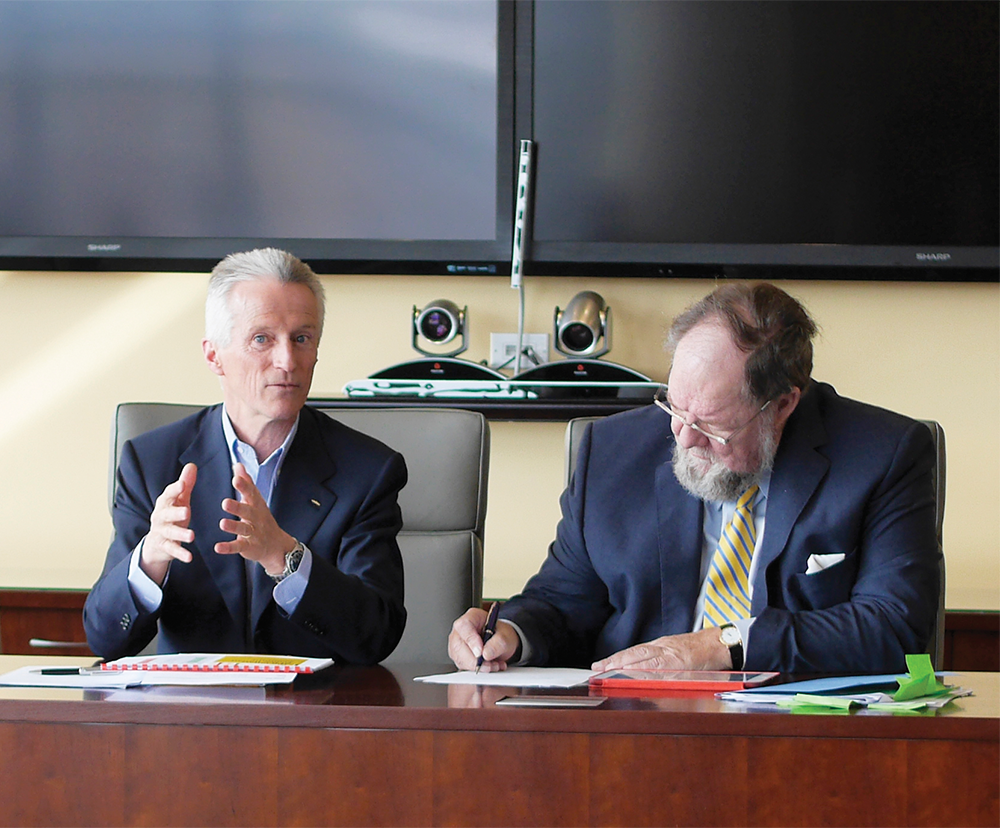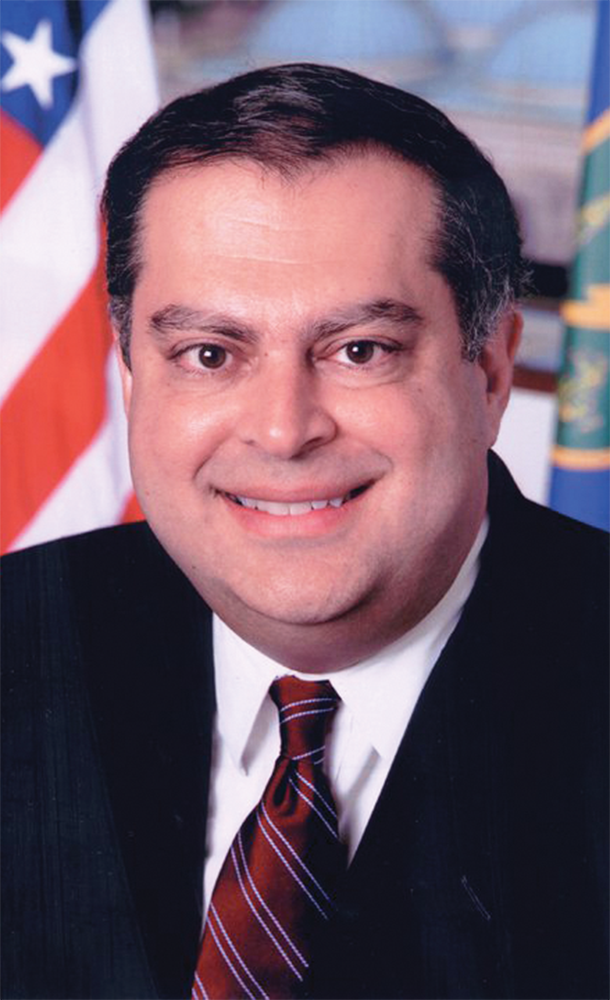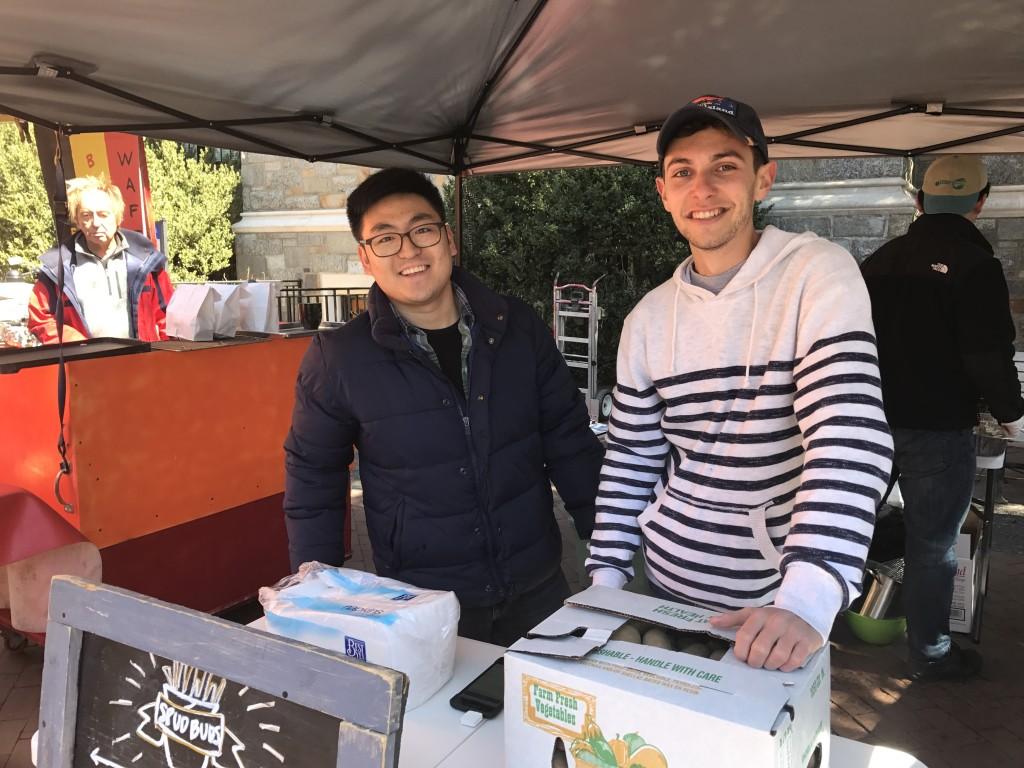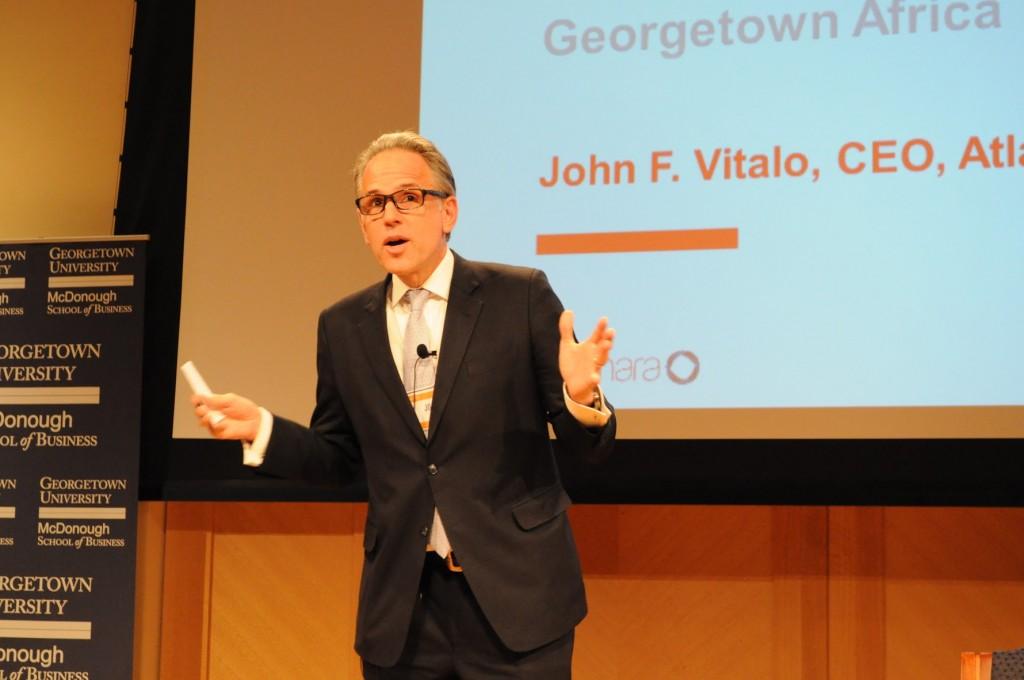
John Vitalo, the Chief Executive Officer of financial services holding company Atlas Mara, ended the Africa Business conference with his closing remarks regarding Africa’s population growth, which he believes will position the continent for rapid economic development in coming decades.
Over 300 people from countries as far as Haiti, Nigeria and Uganda flocked to the Rafik B. Hariri Building on Feb. 6 for the inaugural Georgetown Africa Business Conference. Hosted by Georgetown’s McDonough School of Business and the School of Foreign Service’s African studies program, the sold-out event tackled the opportunities and challenges confronting the private sector in Africa.
The conference’s theme “Africa Rising: Business in Action” reflected the tide of optimism expressed by experts on Africa regarding the region’s burgeoning economies and ability to surmount the poor infrastructure, exploitation and weak governance which have historically dogged the continent.
Over the course of the day-long conference, speakers from different industries assembled in six panels to discuss issues of private equity, music, banking, technology, dynamos and the African diaspora. The event was bookended by remarks from keynote speakers, first from Ayotade Oyinlola, Global Head of Human Resources of telecommunication infrastructure firm IHS Towers, and subsequently by John Vitalo, the Chief Executive Officer of financial services holding company Atlas Mara.
The conference, which was entirely run by 15 student volunteers, was funded by partnerships with a family business group of Ghanaian origin, Groupe Nduom, as well as event production brand DrumPulse, the Young African MBA’s, the Young African Professionals network and Coca-Cola.
In the conference’s closing remarks, Georgetown’s Director of African studies Scott Taylor emphasized the conference’s potential to inspire interdisciplinary dialogue among business and academic leaders.
“There are not only financial keys to business success in the continent. There are things like governance, institutions, state-society relations, history and culture,” Taylor said. “I’ve been here for almost 16 years now, and I believe in my heart of hearts that second only to the continent itself, Georgetown University is the best place to study and to know Africa. This institution is poised to become a major hub in the study of Africa and the promotion of business in Africa. This conference is a culmination in the first stage of the journey.”
Vitalo, who addressed attendees in a discussion moderated by Taylor, said that Africa’s rapid population growth uniquely position it to experience exponential economic development in the coming decades. He attributes the upcoming growth to the continent’s expanding population. Africa is estimated to gain 1.3 billion people in the next thirty years, and rapid urbanization has resulted in 51 African cities with populations exceeding one million people.
“Africa is still rising and will continue to rise for decades to come,” Vitalo said. “The majority of the world’s fastest-growing economies are in sub-Saharan Africa. Governance and the ease of doing business continue to improve, and you have a tech-savvy population which, combined with the explosion of financial technology, means that the opportunities for leapfrogging in some more industrialized countries like the United States or Europe are huge.”
In the panel focusing on the African diaspora, Betty Teshome, the CEO and founder of Ethiopian fashion accessories company TAARIK, underscored the responsibility of the African people to take control of the continent’s destiny.
“I see the interest that is coming from the West, from China, from everywhere else,” Teshome said. “Now I feel like everyone is trying to get a piece of the land, and it makes me feel like they will have a big say in how the African story is told unless we do something about it. The amount of interest I see from China and other countries makes me kind of sad because I want us to be the ones who tell the story.”
Ihab Osman, the CEO of business consulting firm Blunai Inc., proposed investment in the agricultural sector as a viable way to alleviate the country’s most pervasive problem – unemployment – during the technology session.
“Agriculture is a sector that has traditionally provided a lot of employment on the continent, but agriculture is not sexy,” Osman said. “If you go back to Africa after going to Georgetown and you say you want to be a farmer, people will think you have lost your mind,” Osman said. “However, agriculture today is a high-tech business. You need your smartphone, you need your tablet, you need your cool MacBook and your Excel skills and all that you have learned here in order to have an agriculture business that is competitive.”
Osman’s co-panelist Yomi Adedeji, the founder and CEO of Nigerian-based tech solutions company Softcom, said that organizational technologies will usher in a new era for Africa.
“Organization is the biggest technology opportunity in Africa,” Adedeji said. “I woke up this morning in D.C., I wanted to cut my hair, and I went to Yelp and there were many places around my hotel. But, in my country there is not a single application that allows me to find a way of organizing what people are thinking. Telecom opens up the opportunities and gives them to you.”
Samuel Ohai, who works for a partially Nigerian-based construction company, Vitruvius Development, said that he attended the conference to learn more about energy and technology, two factors that he argues are most critical for modernizing Nigeria’s faltering infrastructure. Ohai said the conference gave him the resources to confront the issue on his own.
“I think this conference did a good job in identifying issues, but I think there is always more to be talked about,” Ohai said. “I don’t think the overall problem can be solved in a conference, but the conversation’s started and I think the networking that you can do here takes it to the next level in terms of finding a new solution and just connecting you with another entrepreneur or venture capitalist or investor who is willing to give you the opportunity to combat any problem you have.”
Kristen Okoro (SFS ’19), who attended the event, said that although the conference opened her eyes to the potential opportunities in Africa, she would have liked to see more African representatives on each panel.
“One thing I didn’t like in the private equity panel, which was actually was one of the best ones, was that there was only one African person on the panel and all the rest were white,” Okoro said. “I was talking with another conferencegoer, and we both agreed we really need more people like us representing us in the panel.
Despite this critique, Okoro, who was born in Nigeria before immigrating to the U.S. at five years old, said that the conference illuminated Africa in a way that many Western observers do not typically see.
“Africa is not a country. Africa is not just one big place,” Okoro said. “From the north to the south, there’s so much range and culture and people. There’s over 200 tribes in Nigeria alone. Being from Africa myself, I didn’t even know the amount of opportunities available there, the amount of things I could do for myself there, for other people in Nigeria.”
Asari Aniagolu (COL ’07), an alumna who attended the conference and now works as a law clerk at the Chadbourne & Park LLP, commended her alma mater for transforming her view of Africa.
“Of course there are some pitfalls to Africa, but a lot of them are overstated, misconstrued or misunderstood, so the most important thing is for people to go with an optimistic point of view about its future,” Aniagolu said. “I’m proud to be an alum here and I’m happy that we took this leap because it shows that Georgetown is committed to the future.”


